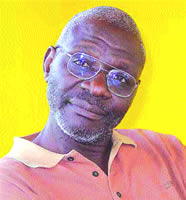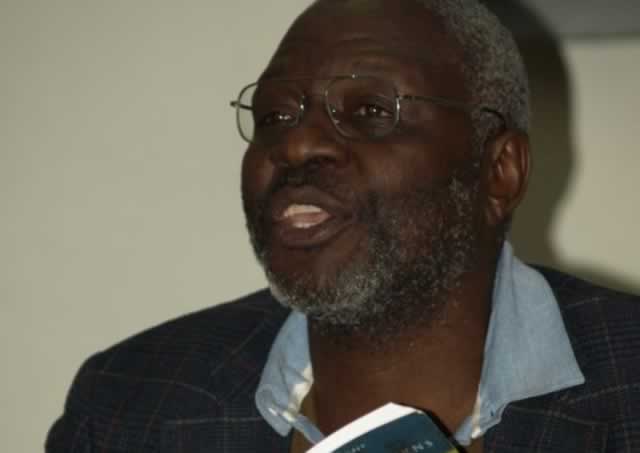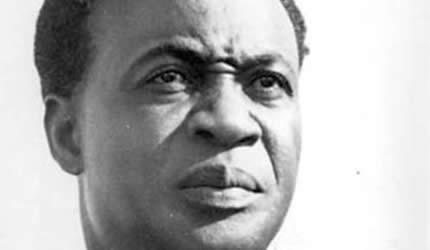Of poverty, hypocrisy and plastic balls

Elliot Ziwira At the Bookstore
LIFE’S lacks and challenges sometimes teach us a lot of things about survival; and one of them is ingenuity. The Shona have a proverb which loosely translates to the effect that one who has a disability is the most ingenious of all people. There is something in lack that pushes one to have a greater resolve to live – no matter the circumstances. Yes, in our poverty we are determined to live life to the fullest – and entertain ourselves in our own poor way – recreation is still recreation – so we console ourselves.
For toys we use bricks or whatever object can be pushed around our imaginary highways – highways that seem to go nowhere. We can also craft our own “mobile” toys using wire, empty shoe polish cans and the like; aeroplanes modelled from maize husks can actually take off the ground in our sight and hoist us on maiden voyages across oceans. Yes, the affluent and their arrogant dispossessions, can keep their World Cup imitation soccer balls, and we can play our plastic balls and exuberantly juggle them along the touchlines of our makeshift stadia.
We espy ourselves in the Footballers Hall of Fame, alongside the likes of Pele, Diego Maradona, Lionel Messi and Samuel Eto’o. Such is the tragedy of lack. It gives a false impression of outcomes and hides the true nature of suffering.
In a world where materialism and avarice; the most egregious of all human follies, are in vogue, those in the corridors of power and have the means, pacify the poor with plastic balls for them to have a false sense of nirvana.
The real problems affecting the marginalised, vulnerable and impoverished majority are trivialised and a flippancy of hope is created. The humongous and gluttonous fish of prey feasts on the small fish that swim to the shore to eke out an existence out of none existent algae.
Everything is bent against the feeble in favour of the mighty, who keep on spewing plastic balls in the wake of gravy trains. Who really is to blame, the one who accepts the plastic balls modelled on those he improvised, or the “generous” provider? Can the panacea really be mere plastic balls?
It is against this backdrop that the reading of “No More Plastic Balls and Other Stories” (2000), edited by Clement Chihota and Robert Muponde, is made a unique one. Wary of the folly of momentary satiation, the writers advocate the demise of catharsis based on vice. They do not only lambast oppressive tendencies inherent in the political and economic corridors of power, but are also contemptuous of the myopic, gullible and patient inclinations of the oppressed.
Nhamo Mhiripiri, in the title story, “No More Plastic Balls”, explores the vice of materialism which breeds oppressive tendencies in Man, through a boy’s struggles to free himself from the restrictive nature of the family unit in general, and pertinently the claustrophobia of home. As a bildungsroman, the story captures the boy’s transformation from childhood to adulthood, though not in physical terms, but psychologically. Through this transformation in space, he is able to circumvent his parents’ tyrannical rules.
The boy’s parents, who are driven on by gain, and sneer at those presumed to be below them in social echelons, confine him behind walls. Under the watchful eye of the maid, who is used as a decoy in the oppressive machinations, he follows a routine of controlled play, food and all. Although he has his own toys, he takes a liking to the plastic balls thrown at him by a neighbouring young man.
However, the boy realises the conspiracy of oppression against him and refuses to accept the balls anymore. He could hear the carefree excitement issuing from beyond the walls of his caged existence beckoning him as those of his age enjoy the innocent, thus uninhibited freedom of growing up. The boy’s refusal to have his condition trivialised by a conspiracy of adults; the young man who gives him plastic balls, the maid and his parents, marks the beginning of his psychological development, hence, his quest for freedom.
An opportunity avails itself, as is always the case with fate, when the maid uncharacteristically leaves the gate unlocked. The beckoning from the cheers and encouragement outside being more powerful than ever, the boy escapes to freedom. The momentary thrill spurs him on as he races up and down the street with his peers. His release from bondage does not last long though, for he is hit by a speeding car and sadly he dies. Ironically, the rogue driver, who scantly realises the peril of such deplorable driving in the streets where other people’s children will be playing, is his father. Such is the tragic nature of life and the bane of tolerance.
In “No More Plastic Balls and Other Stories,” Chihota and Muponde preside over the new writers’ vision of a revolution gone astray as individuals tussle to outdo each other in a rat race devoid of vision. The writers are inspired by the post-colonial society so much disillusioned that it is desperate for new heroes, but has no idea where such people could be found. This rationale especially obtains in the stories; “When Passions Gather”, “The Presidential Goggles”, “Touched” and “When the Baobab Gets Fat”.
Like Alexander Kanengoni and Shimmer Chinodya, they use the metaphor of madness to portray the sense of loss that the personae find themselves in upon discovery that their lives are embedded on thin existence as brother rises against brother in an epic fit for the Oscars.
In “When the Baobab Gets Fat”, Philibon, who joined the liberation struggle after stealing from his employer, D. D. M. M. D Sugar Mutape Mupombwi, comes back none the wiser as his mind plays tricks with his soul, and the boss who never fired a single shot, becomes the new hero because of his success with women and his money, whose source is shrouded in mystery.
The heroes in Robert Muponde’s stories, especially “Touched” and “The Advice” are drawn from intellectuals who find solace in their attempt to usher in a new era of vision. Unfortunately, like Elija in “Touched”, they lack a strategic approach to the problems facing them. Like Julius “The Hero” in Charles Mungoshi’s “Coming of the Dry Season”, he is expelled from university because of his defiance of authority and ends up teaching in Sanyati. To echo Muponde and Chihota in their preface to the collection, he is “an expression of the horror of the void that appears in a society that once believed in a common vision, an ideal and ideology.”
Such heroic adventures however, are not worthwhile in a society that is already fed up and has lost faith in such heroic antics. Elija’s savage killing of Katsanga over Viola, a prostitute, his arrest and subsequent suicide, “as a way of authoring his own epic” put paid the vanity of it all as death-total silence triumphs.







Comments